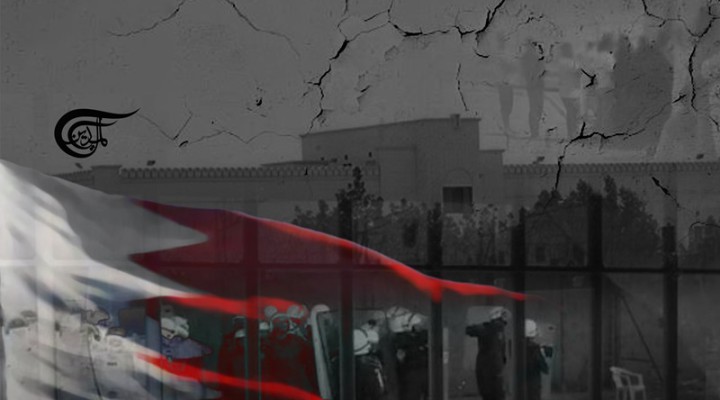Bahraini political prisoners on hunger strike to protest punitive restrictions: 45+ have died in custody since 2011

Hunger strikes, sit-ins, and other forms of peaceful protests frequently occur there as 1300+ prisoners of conscience survive in bug-infested overcrowded cells and are arbitrarily deprived of their minimal basic rights.
Several hundreds of political prisoners are now on an open-ended hunger strike to protest rights abuses at Bahrain’s notorious Jau prison, earlier this week. They are also voicing solidarity with their fellow political inmates who are being held incommunicado for complaining about harassment and psychological pressure.
Hunger strikes, sit-ins, and other forms of peaceful protests frequently occur there as 1300+ prisoners of conscience survive in bug-infested overcrowded cells and are arbitrarily deprived of their minimal basic rights guaranteed in accordance with international and local laws.
In April 2021, Jau’s political prisoners staged a sit-in following the death of Abbas Malallah, who was sentenced to 15 years for his peaceful role in the 2011 uprising. The prison’s guards used stun grenades and batons with excessive force to disperse the outrageous prisoners. Ever since, more than 50 political prisoners disappeared – many still remain incommunicado.
In November 2014, the prison’s guards subjected Hasan al-Qattan to severe torture that left him with a fractured skull and a ruptured kidney. He was found dead the next morning in his solitary confinement cell.
For his part, Sayyed Kathem al-Sahlawi, a former prisoner, complained of cancer symptoms in 2015 until he was diagnosed with cancer in 2018. Due to medical negligence, he eventually passed away in February 2020.
According to rights groups, Jau prison has only two physicians on staff (1 per shift), and no more than 2-3 medical staff on duty at any given time. Those are general practitioners, not specialists – such as dental, sickle-cell anemia, multiple sclerosis, or cancer. They typically dispense Panadol or Restamol for all complaints. Diagnostic equipment, such as X-ray machines, is lacking.
As a state party to the UN Standard Minimum Rules for the Treatment of Prisoners (Nelson Mandela Rules), the government of Bahrain is legally obliged to provide all prisoners who require treatment “the same standards of health care that are available in the community” without discrimination. The failure to provide adequate healthcare violates the absolute prohibition of torture and other cruel, inhuman, or degrading treatment or punishment, including under Article 7 of the International Covenant on Civil and Political Rights, to which Bahrain is also a state party.
The prison’s unsanitary living conditions were exacerbated upon the outbreak of COVID-19 by the end of March 2021. As a result, Hussein Barakat died; instead of holding the perpetrators accountable, the prison administration warned the prisoners not to mention the issue or their calls would be immediately cut off and punitively suspended.
Indeed, no criticism of the policy of systematic medical negligence is permissible; this is perfectly in line with the refusal to tolerate any dissidence whatsoever.
Besides, sectarian discrimination is common in Jau prison; political prisoners are continually prohibited from practicing their religious rituals while their belongings are arbitrarily confiscated.
In 2011, pro-democracy peaceful protests broke out across the tiny archipelago centered in the Gulf and ruled by the Al Khalifa dynasty. The protesters demanded that the ruling family relinquish power and allow a just system representing all citizens to be established.
Yet, the protests were heavy-handedly put out by the government, which killed, tortured, and arrested hundreds of citizens, rights campaigners, clerics, medics, academics, athletes, elites, and opposition leaders, many of whom are serving life sentences and suffer from severe medical complications as a result of torture and willful medical neglect.
The government has also broken up major opposition parties, revoked the nationality of several pro-democracy activists, and deported those made stateless. There no longer exist any independent media since Al-Wasat newspaper was shut down in June 2017, not to mention the dissolution of every political association, including Al Wefaq. The government has further manipulated surveillance; every publication on social networks is subject to censorship.
 TheAltWorld
TheAltWorld 
0 thoughts on “Bahraini political prisoners on hunger strike to protest punitive restrictions: 45+ have died in custody since 2011”